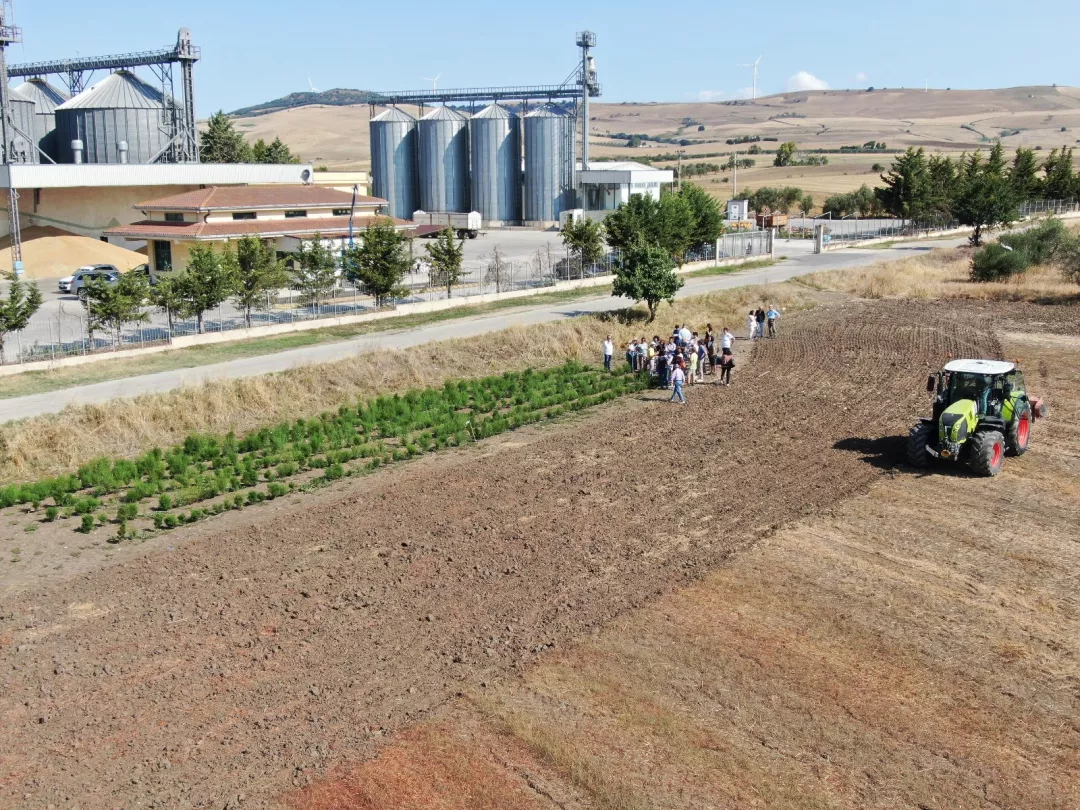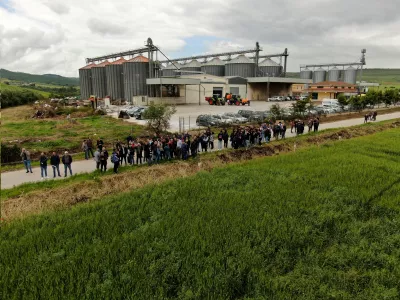Summary
In Basilicata, Italy, the CERESO Operational Group has pioneered precision agriculture, demonstrating how technology and collaboration between researchers and farmers can optimise inputs and promote more sustainable cereal crop systems. Their solutions can help local farmers address the challenges posed by the impacts of climate change, soil degradation, and the overuse of fertilisers and pesticides.
In Basilicata, Italy, the CERESO Operational Group has pioneered precision agriculture, demonstrating how technology and collaboration between researchers and farmers can optimise inputs and promote more sustainable cereal crop systems. Their solutions not only help farmers address challenges posed by climate change, soil degradation, and the overuse of fertilisers and pesticides, but also provide researchers with valuable insights into soil-plant relationships for enhancing climate resilience.
CERESO, formally titled "Optimisation of Inputs for Sustainability of Cereal Crop Systems in Basilicata," focused on improving cereal farming systems to make them more sustainable and resilient. The project contributed to reducing environmental impacts while maintaining crop yields, highlighting the potential for precision agriculture to tackle pressing farming challenges.
The initiative developed precision soil management practices to optimise inputs, enhance soil health, and reduce the environmental footprint of cereal farming. Using cutting-edge technologies, including high-resolution geo-electrical soil mapping and site-specific variable rate management, the project created a platform for precision farming. This platform used an innovative two-step method combining soil-based and agronomic criteria to mark out uniform management zones. By tailoring interventions to each zone’s specific needs, CERESO significantly reduced fertiliser and pesticide use while maintaining or improving productivity on a 24-hectare pilot farm. Farmers’ feedback was very positive, though the high cost of machinery remains a barrier. Farmers were encouraged by the prospect of investing savings from reduced inputs into equipment, with profitability expected over the long term.
Prof. Michele Perniola noted, “From a political point of view, we would like investment in this machinery to be encouraged by regional support for farmers, as it will contribute to environmental conservation for the entire local population.”
Among its activities, CERESO emphasised sustainable practices such as minimum tillage, crop rotation, and organic and conservation techniques. Results from three farms where the techniques were tested showed a 24% reduction in fertiliser use without compromising yields. Additionally, nitrogen use efficiency (NUE), nitrogen agronomic efficiency (NAE), and protein content in durum wheat improved. A field visit organised by a cooperative engaged 350 local farmers, who understood the potential of precision farming and were motivated to adopt these approaches.
These achievements demonstrate the tangible benefits of precision agriculture. Prof. Perniola stated, “While the CERESO project officially concluded in 2022, the methodologies and tools developed have the potential to be adapted and scaled up to other regions and farming systems. Looking ahead, we aim to explore automated fertilisation systems and expand collaborations with farmers and researchers to ensure the knowledge and innovations generated continue to benefit the agricultural community. However, when the project ended, we did not meet farmers directly, and only a small number reached out for more information. Many more farmers need to be involved, and it is crucial to invest more time in disseminating this information widely. We are currently working on a new project to optimise phosphorus fertilisation and weed control using precision farming techniques.”
To build on the outcomes of the CERESO project, the OG hosted the EU CAP Network cross-visit ‘Circular and organic soil management’ in June 2023. This event provided a platform for CERESO to share its approach with other Operational Groups across Europe. Although limited field activities took place due to timing, participants gained valuable insights into precision farming applications, showcasing CERESO’s potential as a model for sustainable agriculture in diverse contexts.
Contacts
Michele Perniola
Researcher at the University of Basilicata
Roberta Rossi
Researcher at the CREA (Council for Research in Agriculture and Analysis of the Agricultural Economy) - Research Centre for Animal Production and Aquaculture
Rocco Antonio Mancuso
Farmers’ organisation ‘Società Cooperativa Agricola La Generale’
Mariana Amato
Researcher at the University of Basilicata, School of Agricultural, Forest, Food, and Environmental Sciences (UNIBAS - SAFE)


